#if only because the idea of such religion being present in a world full of magic is fascinating
Explore tagged Tumblr posts
Text
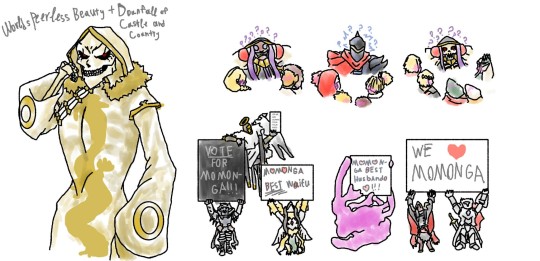
I call this the Worlds Peerless Beauty AU
It all started because the developers of YGRASILL decide "let's have a beauty contest!" In which players voted for who they think is either the most attractive or beautiful player avatar
Ainz Ooal Gown to not be undone come together and start to brainstorm who to put
At first they think of Bukubukushagama because she has the voice , then they wake up and remember that most people wouldn't find a pink slime attractive
The they go through the other fem presenting members and well ...
Yamaiko looks like she will pummel someone to the ground
And the less said about Ankoro Mocchi Mochi the better
Then Peroroncino has the bright idea to put Momo-can , because everyone loves him
To Momonga dismay everyone else in the guild agrees , so majority vote
And so Ainz Ooal Gown goes head first and full steam into putting Momonga out there
By the time the voting came almost everyone knew that Momonga the adorable skeleton is more than just the guild leader of Ainz Ooal Gown
And say what you will about YGRASILL player being Heteromorphphobic but even they can agree that a skeleton getting the title of Worlds Peerless Beauty would be hilarious
And so in parts doo to players :
- actually falling for Momonga
- being a monster fucker
- being a troll
- being the only contestants most people recognize
Momonga got the title in a rather big majority vote (the second place had close to 3x less votes)
The title allows for a rare class called Peerless Beauty that's kinda overpowered , and because they are Ainz Ooal Gown they start to abuse it (the fact it allows Momonga to charm even otherwise not possible character is a BIG bonus)
But times goes on
And then we get the start of the story
Except now you have Ainz not only as the undisputed ruler of Nazarick but also as the undisputedly most beautiful thing there is
Because the Carne Village situation ? He got the villagers blushing , the enemy attackers blushing , Gazef blushing , Gazef's men blushing and the Sunlight Scripture blushing . And they all are blushing like it's a sport . His mere presence makes people questioning either their sexuality, morality or sense of beauty
Being Momon (with the armor and it's dampening effect) only somewhat negates that , more specifically it just makes it so people need to either look closer or be around him more to get the same effect . Remember the scout dude that made a rude comment about Ainz's aperance ? Yeah here he says that Nabe is beautiful in a cold , exotic and unique to see way , while Momon has a warm everyday type of beauty that slowly but steadily grows on you . And Evil Eye is even more lovesick that canon
Ad the moment the mask comes of is when people are hit the hardest :
Jirchiv is even more convinced that Ainz is GOD (he is probably gonna convert soon)(he is also one of the only people NOT having a sexuality crisis because he knows what he is , that being sapiosexual)
Neia is even more sure Ainz is GOD and acts as such (the religion is spreading even quicker)(Neia is also one of the only other people who aren't having a sexuality crisis over Ainz ,because she had her's from Shizu)
The Elf King wants to make babies (and is getting his ass beat)(power hungry madman what can you do ?)
Rener is having a breakdown because she thought she only liked Climb that way and is having a sexuality crisis
Climb is going through a sexuality crisis of his own because he thought he only had feelings for Rener
Zaryusu and Crusch are not only also in a sexuality crisis but are also contemplating opening their marriage to also include Lord Ainz if he so wishes
Brain is having his second biggest sexuality crisis (the first was from Gazef , so he knew he liked powerful men what he just didn't know was that he liked powerful men even and if they are skeletons)
Filip (being an idiot) thought that Ainz had a crush on him and decided to do all that (for some no name noble) . Filip decide he quite likes both him and Albedo and wouldn't mind having her as their shared mistress (he is getting send to Neuronist for the blasphemy he committed)
Remedios thinks Ainz is even extra evil because he is that beautiful
Zanac is like "I talked to GOD , and he is a really cool and down to earth guy" , granted he died but still got the respect of both the world strongest and most beautiful person and in just one conversation
Platinum Dragon Lord is contemplating kidnapping Ainz(and maybe taking him as his bride) and keeping him in his castles like he is a dragon from a fairy tale (dragons kind inborn skill to be able to judge how much something cost are going overdrive trying to calculate how beautiful Ainz is)
One of the fun parts in this is that people who wouldn't be attracted to him sexuality won't be attracted they just see him as someone extremely beautiful , and if someone argues let me ask you . Do you get horny while watching a sunset ?
169 notes
·
View notes
Text
It's my birthday so first post related to Castlevania nocturne season 2 related with my expected babygirl drolta so spoilers down below
THE WRATH OF DROLTA TZUENTES
"For every suffering, there's wisdom" - Drolta
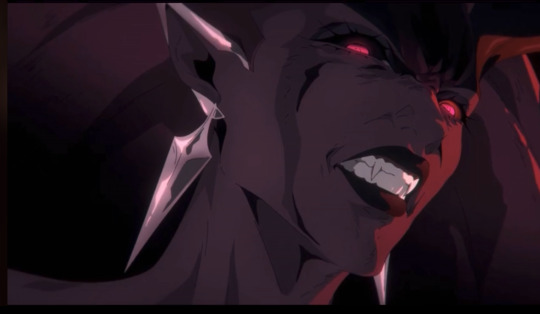
And since I'm a hooker for bad women it was so damn pleasant to see that her first move when entering the series was announcing her fake religion under the vampire messiah and killing mercilessly a bunch of men
Ever since i laid eyes on her on s1 i knew she was going to be trouble
Occasionally making some jokes there and there, being suspicious of Olrox ever since the start, her presence was undeniable and it would always make me in the edge of my seat of how unpredictable she was
Even if Erzsebet was supposed to be the big bad she lacked what Drolta had
Presentation and unpredictability
With the full context of her backstory in s2 i now know that all she really wanted was to revive sekkemet, in exchange for her "salvation"
She had a rough upbringing just like everyone else, having to watch her people being killed when she was human
Feeling weak for not being able to protect anyone
Pleading for a sign from her godness
She got one, but she misinterpreted it completely
Instead of keep the healing aspect of Sekkemet she took in the war part of her and ran with it, making herself a vampire and spending centuries manipulating, scheming and destroying for a single goal
I literally cheered at my seat when that scene happened
And that all that erzsebet was to her a means to an end, she filled her with promises of grandness, worshipping and adoration by all, but all that she saw was a vessel 'worthy enough' to carry the violent side of the goodness without burning into ash, and as soon as she was losing near the end of s2 Drolta saw no need for her anymore and claimed that power to herself
That's how drolta saw everything and everyone after what happened to her
A means to an end
While i was primarily dissapointed at the idea of her taking a backseat as Erzsebet was the main bad on s1, it was brilliant that she played not only her but the entire audience to think she was not a bigger threat for being a pawn, when every sign was laid that yes she was the big deal, and rentless in her pursuit, unchangeable
Erzsebet loved Drolta and when she got killed by alucard at the end of s1, she was desperate to bring her "most faithful servant" back
But Drolta didn't shared the same sentiment, though she was really good in hiding it, because yes, she was devoted, but to herself and to her cause
Girl was calculating, every sentence of hers carefully spoken made her terrifyingly sweet and ironic
And i loved it
It felt extremely cathartic the way she broke down when realized Sekkemet (possessing Annette) hated her for what she had done
"i thought this is what YOU wanted" - Drolta
It was brutal
Brutal because she realized that all he did to serve her was for nothing, that she fucked up reaaaal bad and there was no turning back anymore
It was instant karma for betraying Erzsebet a few minutes prior, for all the lives she took
For all the pain she caused in the name of the goddess she believed
And the way she died, by the "boy who run away" Richter splitting her in half with Alucard's sword and his powerful eyes being the last thing she saw
Absolute cinema ✋✋
I loved Drolta exactly by the fact she was a cautionary tale kind of villain, and irredeemable
She would never change nor love, being the definition of the vampire's virtue that she thoughtfully embraced in a religious fanatism that would engulf her for centuries because she believed she'd be rewarded by the godness she thought that cared
She was vile, bloodthirsty and craved nothing more than plunge the world into eternal chaos in the name of her godness
A satisfying villain for a satisfying series
#bunbunscreams#drolta tzuentes#castlevania nocturne#castlevania season 2#Castlevania season 2 spoilers
18 notes
·
View notes
Text
Ateez's Full Storyline Explained - Part 8
Masterlist
Fever Epilogue Diary Entries:

The Intro consists of a news report detailing the theft of a Mayan relic from an exhibition at the National Museum of Korea
The trio of thieves were arrested mid-heist and when questioned by a reporter, one of them stated:
"I had to steal the relic to save humanity before they face the world's end."
They were also identified as believers of the religion named 'Sciensalvar' which was established by scientist Henry Jo in 1999 who used it to spread his beliefs about (1) humans being made up of energy, (2) his faith that all uncertainties about the future can be resolved with science, and (3) the energy condensed inside the Mayan relic (which is shaped like an hourglass) will be the key to saving humanity
It's at this point that the parallels between 'Sciensalvar' and the Central Government in the Z-World become evident
I'd also like to note that the name "Sciensalvar" is likely just a combination of "Scien" from "science" and "salvar" which is Spanish for "to save, to rescue" - saved by science
The Mayan relic Henry Jo mentioned is an hourglass artifact that imitates the moon's movement.
Experts have long speculated about the artifacts purpose but the common theory is that it was "crafted through an uncommon metallurgy technique" and used for "ceremonial purposes"
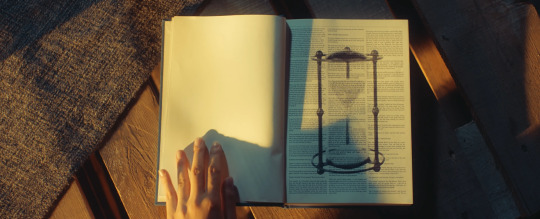
Ateez, now back in their own world, find themselves back in time to before Yunho's brother's accident which they presume to be a side-effect from smashing the Cromer
Yunho is, of course, thrilled by this because he's been handed a chance to save his brother but San feels conflicted
From San's entry:
I can understand Yunho, but deep down in my heart, I felt bitter against him. Whether we are in the past or present, one thing was clear. We may be alive, but Yeosang isn't here with us.
With the Cromer broken, San doesn't see a way for them to go back and safe him
Just then, Seonghwa rushed toward them with a shouted "This is the Cromer, right?"
He's holding the article from the Intro about the museum heist
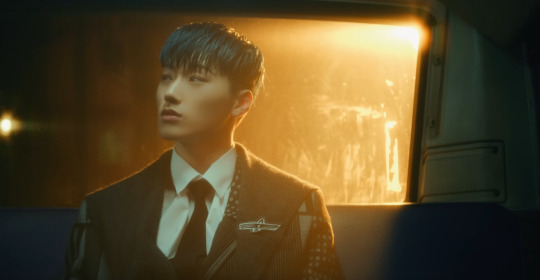
Hongjoong is quick to draw the conclusions that the Cromer Yeosang just broke was from the other world so it's quite possible this world has its own version which would allow them to bring back Yeosang; they could just put it back in the museum after
The other members are immediately against Hongjoong's idea because of how dangerous and illegal it is
From Seonghwa's entry, we hear Hongjoong's reply:
"Whether it is legal or illegal, what about Yeosang? You are telling me that you want us to leave him there?"
Seonghwa admits to himself that he would've protested too in the past but now:
I'm not the person who I used to be. Saving Yeosang is my top priority. "We decided not be stuck in the past. When we left to another dimension, we all made up our minds, didn't we?"
Since they're sure they traveled back in time, they've been given the chance to make things right so, one by one, the other members agree to Hongjoong's plan
As everyone was coming together, Yunho quietly said, "I want to stay here. I can't leave my brother."
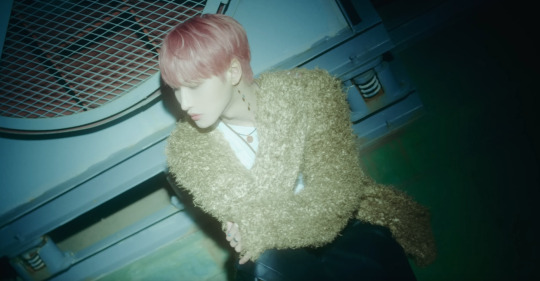
Shocked by Yunho's words, Jongho and Mingi distance themselves from the rest
From Jongho's entry:
"I respect Yunho's decision." I looked at Mingi, perplexed. He carefully went on. "When I thought that I may lose my grandmother, everything felt meaningless, even my dreams and our members. I believe it will be even worse for Yunho. He already lost his brother once. He'd never want to let him go." At that moment, I remembered when I punched Mingi. When Mingi told us he wanted to quit, saying that our dreams are meaningless, I felt betrayed and swung my fist. Obviously, my heart was instantly flooded with regret.
Mingi then, for the first time, shared his side of the story: his grandmother was the only family he had left, so when he thought he might lose her, he couldn't bear the thought of having fun with the members while her condition was worsening
It's then that Jongho finally understands where Mingi had been coming from back then and comes to the conclusion that Yunho must have it rough as well - torn between wanting to save Yeosang and his brother
They discussed things with the other members and decided to still go through with the plan; this time as six
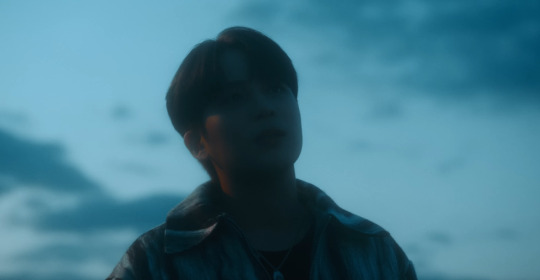
Despite being back home with his brother, Yunho is nervous but hopeful that everything's going as planned
He keeps checking his phone every few minutes for which his brother scolds him
From Yunho's entry:
"You are so weird! You've changed so much! Well, I like it a lot better than when you were wandering around on your motorcycle... But I still can't get used to this sudden change in the last two weeks."
Yunho proceeds to switch the topic to the state of his brother's legs - his right has been dysfunctional since birth so his left tended to swell up a lot
Yunho massaged the left for him while he joked it must be what he traded for his musical skills to which his brother laughed
His brother calls it a blessing in disguise and switches on the TV just as the news came on
The report was about Henry Jo who'd just stormed the museum with 100 followers
Some boys who were trying to stop them from stealing the relic, are now being held as hostages. I jumped up. The hostages were my members. I took out my motorcycle key from the cabinet and yelled at my brother, "Stay inside. You should stay inside no matter what!"
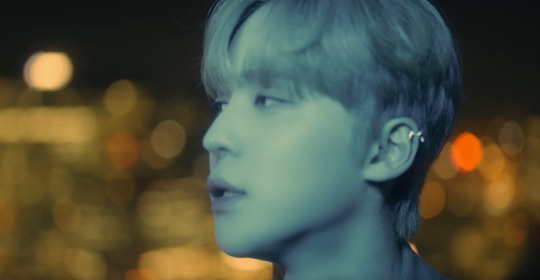
From Wooyoung's entry:
Thought Sciensalvar was a religious group. But why... Why is Henry Jo pointing his knife at my throat? How did this happen?
The plan had been to show up at the museum at 4pm and enter the museum in two groups of three - one to distract the security guards which tend to loosen up at this point, and one to steal the Cromer before they got out of there and switched to the Z-World to get Yeosang
However, they didn't even get into the building before things derailed
A group of red-clad people entered the exhibition hall; they were gathered around one lone figure in black techwear holding the Cromer
It was in that moment that some high school girls with red blankets passed Wooyoung who snatched one of the blanket and covered himself, leaving the girls with embarrassed expressions behind
The five other members also proceeded to join the red-covered mass, but just before they reached Henry Jo, the police fired a blank and surrounded the group
At that moment, I reached towards the Cromer... But Henry Jo pointed a blade at my throat even more quickly. He whispered in my ear, holding back his laughter. "I just needed a hostage, so thank you for coming!"
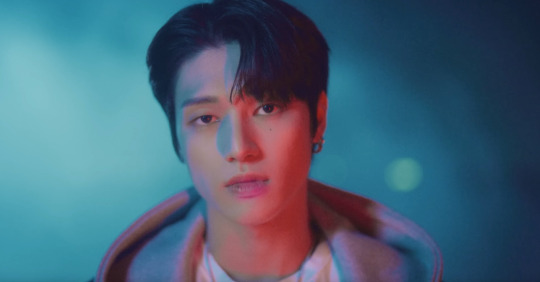
From Hongjoong's entry:
'Think Hongjoong. Think!' My head blacked out. My head stopped because of this fear I've never felt before. Bang! The police shot another blank fire shot. As the final warning, the police yelled that if the hostages were not released, they would fire shots immediately.
Henry Jo orders his followers to not be swayed, no matter what
Just then, a group of six bikers races toward the museum and begins to circle the Sciensalvar followers who are visibly getting nervous
The noise from the bikes drowns out Henry Jo's instructions
Hongjoong's gaze catch sight of a familiar sticker on one of the bikes: "ATEEZ YH" - these are Yunho and his friends
I intuitively knew Yunho's plan. As Henry Jo lost control over his believers, he turned towards the crowd. "Wooyoung!!!" I wasn't sure if Wooyoung heard me, or if he intuitively knew it was Yunho, but Wooyoung snatched the Cromer and started to run.
The moment they split from the crowd, the motorcycles pull up and give them a chance to hop on before ramping up to put some distance between them and the museum
When Hongjoong looks back, he finds Henry Jo also splitting from his followers while the police were distracted by the chaos
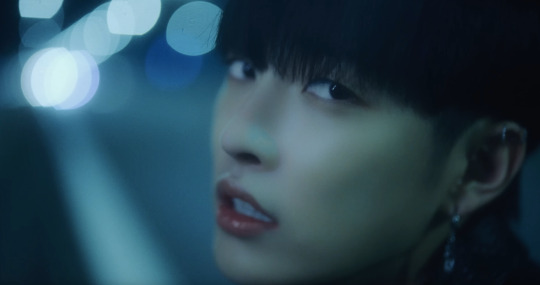
From Mingi's entry:
"Ah, I knew you'd come back!" I shouted with excitement behind Yunho. As I was shouting with joy, I heard Hongjoong saying, "There's a car behind you!!"
The six motorcycles swerve hard to dodge the oncoming car, resulting in each of them crashing to the ground while the car rushes past and runs over the pedestrians on the sidewalk
Yunho trembles as he catches sight of who got hit
"Brother!" Yunho screamed as he ran to the pedestrian. It was Yunho's brother on the ground. He seemed like he was heading towards the museum after seeing Yunho's motorcycle on the news. Yunho's brother slowly opened his eyes and asked: "Is it 5:07 right now?" I checked my phone and it was 5:07 PM. "Your diary said that I got hit by a car at 5:07 PM." Yunho looked at his brother, startled. His brother went on, saying: "Sorry. I read your journal on the desk. I knew something was going on, but you never told me what you're going through." He painfully continued breathing. "It didn't make any sense, so I thought it was a lie. I guess it wasn't." "We need to go to the hospital right now." Yunho wiped his tears and tried to pull his brother, but his brother grabbed his arm. Yunho held on to his brother's hand as if he'd never let him go. "There's something I need to tell you... It wasn't your fault that I got injured back then, and even now, it isn't your fault. So leave me in the past and move on with your own life." Yunho was weeping. His brother slowly patted Yunho's head. "I love you, my brother. You know what I always say, right? You're doing your best just by going through the day. I was happy enough for the last two weeks. I appreciate it." Then, Yunho's brother passed out. Yunho put his head down on his brother's chest and wailed.
Henry Jo stumbles out of the flipped over car, blood dripping from a head injury as his gaze zeroes in on the Cromer in Wooyoung's hand
He pulls out a knife and rushes toward him but get interrupted when Yunho's fist sends him flying with an accompanied shout of "Turn the Cromer!"
Henry Jo picks his knife back up and climbs to his feet but just before he can reach them, Wooyoung turns the Cromer
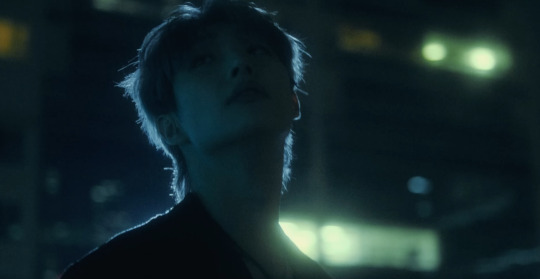
From Yeosang's entry:
How long have I been in this glass room? It felt like an eternity being in this tube without any light.
All Yeosang has to look at are the resistance fighters covered by a black sheet with their biological energy stolen; among them, the Grimes siblings (their deaths are later fully confirmed in The World Ep Fin Diary Entries)
Left Eye and the siblings had been alerted by the bright light the Cromer emitted when it shattered but only Left Eye managed to escape the bunker, though even he lost his right arm in the process
I don't know how much time has passed. The pain was so great that I desired to lose my emotions instead. I wished that the Guardians would just kill me.
Just when his thoughts got that desperate, trumpets can be heard from outside
The Android Guardians rush outside and an audible fight breaks out
Yeosang begins to beat against the glass tube
"Somebody please get me out of here! Please!" The light that I hadn't seen for ages slid in when the door opened. Men in black fedoras were fighting with Android Guardians behind the opened door. "Hey, Yeosang." I heard a warm voice calling my name. A guy came near my glass room and pulled down his black mask. Tears of relief burst out of my eyes. It was Seonghwa.
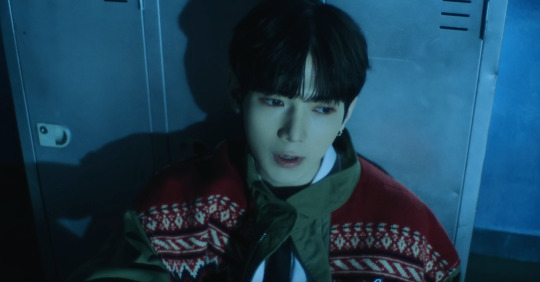
Back in the Black Pirates' underground hideout, Left Eye, missing one arm and seeming more fragile under the weight of another loss, receives a morse code transmission
Left Eye interpreted the Morse Code he wrote down. The light of hope spread on his face gradually. Left Eye turned to the people and shouted: "They're back! They came back!!" The cheers of 'Black Pirate' echoed in the underground hideout. The messy handwriting of Left Eye on the paper reads: "SAY MY NAME. ATEEZ."
Side-note: this is also a callback to Hongjoong's diary entry from the Fever Part 1 Diary Entries
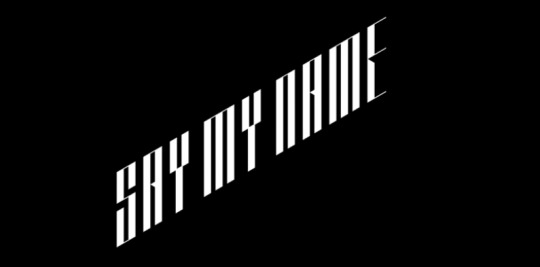
#ateez#ateez lore#hongjoong#seonghwa#yunho#yeosang#san#mingi#wooyoung#jongho#fever epilogue#fever series
58 notes
·
View notes
Text
I was tagged by @nohoperadio for this meme about 10 books or categories-of-books you're planning to read this year... their list is full of Actual Literature and mine isn't going to be nearly as impressive, but here it is anyway...
So I use Goodreads (link - feel free to friend me) and have a gigantic to-read list, which I've tried to manage by breaking it up into various categories/genres, ordering each list according to an obscure algorithm and then rotating through the categories in an overly complicated system that changes every few months... but without some kind of system to tell me what to read next I think I would just be paralyzed by indecision because there are too many books that I want to read Right Now. But anyway that means my reading is pretty planned out and I do have a pretty good idea of what I'm going to be reading this year.
I read mostly SFF and one subgenre I've been very into lately is "stuff with interesting aliens" and one book that's currently near the top of that list is The Sparrow by Mary Doria Russell, which as I understand it is a book about aliens and religion, both topics that I'm interested in. So I'm looking forward to that one.
Another category which is sometimes a subgenre of the above is books (usually SF but occasionally fantasy) which depict a society that Does Gender Differently, especially in the sense of having some kind of non-binary gender system. Sometimes I become an insane completionist about things, and this is one of those things.... it's just fun seeing how many different tri-gender (or whatever) systems writers can come up with, even when the books themselves are otherwise terrible. I've now read most of the well-known stuff in this subgenre and have been venturing into the increasingly obscure... one that I'll probably get to this year is called Eifelheim by Michael Flynn, which apparently also involves both religious themes and aliens with three sexes? Hey, sign me up.
In the general category of "stuff by authors I like and want to read more of" some I've got coming up are Babel-17 by Samuel R. Delany, The Transmigration of Timothy Archer by Philip K. Dick, The Truth and Other Stories by Stanisław Lem, Rocannon's World by Ursula K. Le Guin.... also some more Asimov and Heinlein, which I'm a little embarrassed about as I have been given to understand that all Real SF Fans already read all that "golden age" stuff when they were 12 and haven't glanced at it since.
Also: more silly Sherlock Holmes fanfics pastiches, of which I've already read way too many. I usually go for the ones that bring in SFF elements (the crackier the better) or that sound like they might have h/c in them lol. Coming up in the near future is Lindsay Faye's Observations by Gaslight.
In the nonfiction category, the next on the list is Buddhisms: An Introduction by John S. Strong, which I picked out just by searching around for a good introductory book on the topic. That's how I tend to approach nonfiction reading, by starting with a general overview of whatever topic I'm interested in to get some background on the "scholarly consensus" before delving into books on more specific subtopics or scholars presenting their own idiosyncratic view or "bold new theory" or whatever. Mostly I've been reading about religion lately; I kind of want to get back into math and science stuff which I liked as a kid and did well at in school, but everything I learned is so rusty now... and I dunno, I like the idea of being the sort of person who actually understands relativity theory or whatever but realistically I'm probably not actually smart enough for it lol.
I guess that's roughly ten things. Tagging (only if they want to obviously) @ipsomaniac @paradigm-adrift and/or anyone else who feels like doing it.
4 notes
·
View notes
Text
Starfinder Character Concept: A Luminous Skeletal Priest
Okay. So. Reading the Ports of Call setting book presented me with the fabulous concept of the Last Call, a colony ship turned mobile funerary barge:
“Space is a minefield of fatal disasters, and the undead can arise from those who die gruesomely or without last rites. Knowing this, a Pharasmin sect called the Cemeterians repurposed a colony ship as their flying temple and set out to provide funerary services across the galaxy. Having now operated for over 50 years, the starship is known as Last Call is easily recognized by its sign reading “Let the End be an Ending” painted above its docking bay. The ship periodically jumps across the galaxy, serving as a trading post, morgue, and neutral ground for all but the unrepentant undead.”
This is enchanting to me. Combined with all the space undead you get in Starfinder, like my beloved Marooned Ones. Just the idea of a ship that is going out to find the wrecks, the dead stations, the lost colonies, in order to grant the dead their last rites and to lay the unquiet dead to rest. Or to just provide services for ships or stations that don’t have their own priests. I so want a character who at least spent time on her as part of their background.
And then, while I was thinking about deathly space priests and their funeral ship, I remembered a Starfinder race that I have loved since I first read about them: the Shatori. I noticed them because of the image firstly, Shatori are 7ft tall translucent immortals with glowing bones. They have a glowing skeleton that shines through their semi-transparent flesh. It’s amazing.
They accidentally set off an invasion of their world by daemons of Abaddon while looking for alternate power sources way back when, and created a spell to keep some of them alive in stasis until the invasion was over, but messed it up and wound up hibernating for centuries in a pocket dimension next to the Boneyard, the deathly energies of which gradually converted the sleeping Shatori into living but sterile immortals. They can’t give birth, can’t create more Shatori, so the survivors in that stasis dimension are the only Shatori’s that are ever going to exist anymore, and each death among them is an irrevocable loss. So they are, as a people, incredibly conscious of death, and seek to preserve their knowledge against their loss. As well as live full lives, in honour of all the Shatori that will never get to live.
Which. Combined with the Last Call.
Now. Shatori do not generally have truck with religion. They’re essentially immortal space Vulcans, they believe in impartiality and rational self-interest. And Pharasma, in particular, is complicated for them, on account of her Boneyard being the thing that … well, did the thing.
But they believe that each death is an irrevocable loss. They believe in preserving the knowledge and actions of those who have died. They believe in ensuring that those who are lost are not forgotten. So maybe one of them might be willing to crew a ship and find the lost dead and ensure that their names, their deeds, their knowledge, and the nature of their deaths, is recorded and not lost to time and the vast emptiness of space.
Also. Imagery-wise. A 7ft tall luminescent death priest, aboard a flying funeral ship. I’m just saying.
I do think I want an investigative sort of Cemetarian here. Not just last rites. They’re Shatori, they want to know the hows and whys and what-is-lefts. Recovery and preservation of knowledge, so that those who have died did not die wholly in vain. In which case, they might actually be in favour of the survival of intelligent undead, as it preserves the person and the knowledge, which might have maybe driven a little bit of a wedge between them and more zealous Cemetarians (and Pharasmins in general). So they might have been politely asked to leave the Last Call at some point. But they’re interested in continuing the calling regardless. In finding the dead of space, and laying them properly to rest, and recording the nature and circumstances of their deaths, and retrieving as much of who they were and what they knew as possible.
A mystic, almost certainly. Not a direct devotee of Pharasma, though they masked that well for a long time, more a simple chronicler of the dead. I think the Akashic connection? Knowledge, the preservation of knowledge. I like that Shatori already get detect magic, grave words, and stabilise as spell-like abilities. They lean towards deathly investigation from a standing start. We’ll likely build their spell repertoire to match that.
For background … I don’t think I’d go priest. I suspect they may not still be a member of Pharasma’s flock, on account of not actually being that religious or opposed to undeath on a philosophical level. I think I’m going to go with Void Nomad instead. Touched by the isolation and death of the vast cold reaches of space. We’re going to be a philosophical sort of Shatori on an evolving journey of discovery regarding death, that thing which is the horror and inevitable end of our entire species. By studying and honouring and embracing those who have perished to the void, we are slowly learning to accept our own inevitable end.
So. A quiet, contemplative lady, a shining skeletal Shatori on a journey of discovery, death and acceptance.
For a name … I deeply love the names of the planets in the Shatori’s home system of Disaj: Perdane, the world they lost to Abaddon, Perdure, the world on which they enacted their desperate and doomed attempt to escape death, and Prevail, a world relatively unscathed by past mistakes. There’s a theme there that I like. So. She’s going to have renamed herself out in the void, to remind herself of home and to keep the knowledge alive.
Durance Vail. An ex-Cemetarian of the Last Call. A Shatori void nomad akashic mystic. Heh.
(Or, put another way, and still to my giddy delight, a 7ft glowing skeleton lady who would like to go exploring spooky shipwrecks and speak with dead people for broadly altruistic purposes).
(Also, yes, space undead and nautical horror will never not be themes for me. I like spooky ships).
#starfinder#character concepts#space#horror#shatori#mystics#spooky glowing skeleton ladies in space#exploring spooky shipwrecks
12 notes
·
View notes
Text
Thoughts about Amane's T2 VD, Pain and Milgram as a Whole.
CW: Child Abuse, Cults.
(This post accidentally became a sort of sequel to this, not necessary to read before this but would highlight some things I thought and still do think before Purge March came out)
I've been reading Onigiriico translation T2 Voice drama and there's been a recurring sentiment in Amane's dialogue that I've been thinking about for a bit.
That being the idea of Milgram as the ideal society.
Amane: It’s only natural that we, who weren’t acknowledged as a society just because we’re fewer in numbers, would view the possibility of a new world through Milgram as a dream.
It's something that Amane has said before way back in the T1 Voice drama
Amane: Ah, I am looking forward to it! Seeing whether your judgement will align with that of these higher standards! If that is the case, maybe Milgram would be the right world for us to live in, rather than the outside world! Milgram relies on your judgement, isn’t that right? In that case, you could become the mediator for a far more righteous world!!
Now as we know, Milgram as a system, is flawed. Es is allowed to beat prisoners up but prisoners aren't allowed to fight back. Prisoners who are voted guilty get less rights than innocent prisoners and also get inflicted with The Horrors that is the public opinion voices. A good portion of the chaos in voting is the audience (us) trying to figure out what would cause the Least harm with limited information.
This system Hurts People. It's designed to Hurt People, the basic idea is that the audience gets to decided, using any metric, if a person deserves to be punished, or not.
This isn't a belief that is unique to Amane though, as Shidou in his first voice drama also thinks this, at least when it comes to him specifically.
Shidou: That’s just my personality. I just simply don’t think bad of it—this place, I mean. Es: You mean, Milgram? Shidou: Yeah, this place will put me to death.
Shidou is glad that this place exists outside of the law, as it means he is given the opportunity to die for his "sins" whatever those are. He's glad that the law isn't important here, that punishment can come for any sort of reason.
This changes during Trial 2 though, as after Kotoko beats up the guilty prisoners Shidou changes his mind.
Shidou: That’s not what I mean! I think we should put an end to Milgram as a whole. Both for our sake and for yours. ----------------- Shidou: I… “I don’t want to be forgiven”. That feeling of mine remains the same. I need to be punished. I need to atone for my sins. I don’t think Milgram is in the right, but…! There is no better place than this to atone for my crimes. But… as long as Milgram continues like this… we won’t be able to save those who get injured if I don’t get forgiven!
Shidou has seen the consequences first-hand how the voting in Milgram works and the way it affects the people in it and thinks it's horrible...because they are!
Amane however, even after being voted guilty, is steadfast in her belief that Milgram could be the Ideal World. Really the thing that's changed is that Es has disappointed her, that the prison does not align with the "higher standards" she's expected it to.
Es: Both religion and faith are free. However, a doctrine can’t become a universal standard of judgment. Amane: You fool. Isn’t Milgram trying to enforce a new standard of judgment precisely because laws cannot guide this world onto the right path? Are you still being weighed down by the law?
Now, as we know, Amane has a lot of complicated feelings around pain. Amane of course is a person who Does Not want to be hurt, most people are like that!
However she has internalized the abuse inflicted onto her in multiple ways and has repeatedly downplayed the actual harm it causes her.
Magic is full of this, see this verse for example:
But it’s not scary at all, because it’s love I can really think it’s great. See isn’t it a great thing?
But it is also present in Purge March to some extent:

Sorry for my bad handwriting but my point is that even now, in her mind, Amane is downplaying how badly hurt she is. Also very quickly on the bruise: I checked, even in scenes where you Should be able to see the bruise, you can't, it's just not there. Amane has completely erased it from the mental version of herself. I admittedly wouldn't have mentioned it if the eyebags weren't still present. The scene both acknowledges the harm and yet downplays the actual severity of it, I really like it.
But Amane is of course a bit bitter and spiteful, she's been abused for her entire life. Of course she'd be bitter about it!
However it seems like her cult believes that pain and illness is the way to purity and god.
Amane: Both pain and illness are trials. According to our teachings, those who run from them are the worst evil there is. That’s one of the four great principles. No matter who you are, that cannot be forgiven.
Running from pain, from illness, from abuse, is wrong in the eyes of her cult. Trying to avoid it is considered evil. Amane hates Shidou because in her eyes Shidou is pulling them away from purity and righteousness.
Amane, however. isn't someone who can "stand firmly in the face of pain."
Dear wise one, Is this ok? Is it ok to be weak sometimes? I promise! A good girl that keeps a promise is like, mwah!
I doubt anyone can truly be like that forever.
Amane helps the cat because she doesn't want to see the cat in pain.
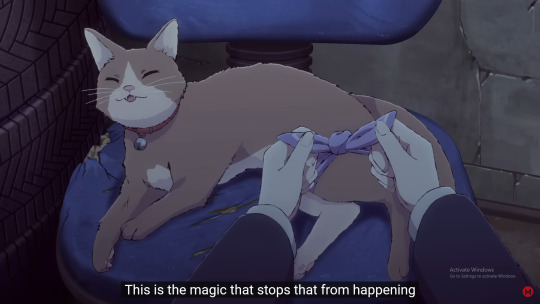
Amane tries her best to avoid upsetting the people in her cult so that she can minimize the risk of being hurt.
Not meaning to brag but I’m pretty happy I’ve made up my mind so they don’t make that face at me again
Amane wants a righteous excuse to Get Out of a harmful situation, because if she has no "righteous excuse" she'd be someone who is running from pain and, thus, by the rules of her cult, one of the worst evils there is.
The cat was both something incredibly painful and emotionally distressing, And a good excuse for her to escape her abuser. As most likely she broke one of the cult's rules. That being the one about destiny.
I don’t need it any more, if you’re going to break your vow Here and now, it’s my turn to tear you apart So there is no second time, I’ll give back the judgment that you gave to me
It's this that makes Milgram appealing to her. The concepts of righteous punishments and trials of pain that CAN be escaped without it directly violating her cult's doctrines. There's an ending, there's safety you can get if you were "good enough," these are things Not Present in her situation. There was No End to Amane's abuse until her mother killed the cat because Amane was Never ever going to be a good enough girl for her.
At least in here, there is an end.
(Anyway vote Amane Innocent!)
#milgram#amane momose#008#milgram amane#milgram meta#milgram analysis#bit messier than I'd like to be but I hope you guys like reading it anyway#cw child abuse#cw cults
53 notes
·
View notes
Text
Part 1-
Definition
This is a basic outline of my personal guidelines for what constitutes a Wiccan path/system. Others’ definitions certainly vary, and these criteria do not necessarily apply to non-Wiccan Pagans/Witches/other Occultists. Most of the concepts addressed here will be investigated more in depth as this work continues.
🕯🌒🌕🌘🕯
🔮 Section A: Belief. It is my assertion that belief, first and foremost, makes the Wiccan. What one does is important to discerning Tradition (or absence thereof), but is secondary to the broader collective of Wiccan religious paths.
Reverence of Goddess AND God, together and equally. Wiccan worship and practice focus on a God and a Goddess, seeing them as manifestations of masculine and feminine divinity (among other equal, opposite, and complementary pairs of forces and concepts. They are but one type of symbolic division).
Belief that the Gods can be directly contacted, whether through channeling, meditation, or other means. Also, It’s important to realize that one doesn’t need an intermediary, but will sometimes need a teacher or guide for the contact to be safe and successful.
Having a reciprocal relationship with the Gods. We give to Them, so They may give to us.
Belief in the effectiveness of Magick. Having confidence that your rituals and spells will work as they should is just as important as performing those works.
🕯🌒🌕🌘🕯
🔮 Section B: Practice. While I put belief first in my own determinations, there are certain applications of those beliefs that I see as essential to practicing Wicca.
God forms/names are European in origin, exceptions to this being Egypt and the Middle East. This is because I see Wicca as the continuation/revival of Pre-Christian Native European Shamanism, and contact with Egypt and Arabian cultures (Mesopotamia, Babylon, Sumer, etc.) is well-established throughout history, and there is much cross-cultural influence between these groups. Also, there are mythological themes these regions have in common, that are not as present in, say, Asia and other parts of Africa. Additionally, many other Indigenous cultures and beliefs around the world today are closed systems.
Celebrating the Sabbats with an understanding of their symbolism and story. There are eight Sabbats, or holidays, in the Wiccan calendar, also sometimes referred to as the Wheel of the Year. The dates given below are those traditionally observed in the Northern Hemisphere.
💀 Samhain – Oct. 31
❄️ Yule – on or about Dec. 21
🕯 Imbolc – Feb. 2
🥚 Eostar – on or about Mar. 21
❤ Beltane – May 1
☀️ Midsummer – on or about June 21
🌾 Lammas – Aug. 1
🍁 Fall Equinox – on or about Sep. 21
Casting a Circle wherein the ritual will be held. The Circle denotes sacred space for sacred acts, and is consecrated to the Gods.
General ritual format includes calling the Quarters, invoking and contacting the Gods, a section for the ritual purpose (celebrate the Sabbat or Esbat, work Magick, etc.), Cakes and Wine (including a libation to the Gods), and then banishing the Quarters at closing.
The Wiccan Rede and the Threefold Law are given some measure of importance. These ethical codes should not only advise on Magickal acts, but on the mundane actions of a Wiccan as well.
🕯🌒🌕🌘🕯
🔮 Section C: Characteristics. These are descriptors, qualities that I feel are essential to the full knowledge, practice, and experience of Wicca.
Wicca is a fertility religion. Wiccans rejoice in and celebrate fertility in all its forms, sexual and otherwise (new growth, ideas, ventures, etc.).
Wicca is a nature religion. All of nature is seen as sacred and integral and interrelated. Humans are a part of nature, as are the Gods and the processes of Magick.
Wicca is an agricultural system. The Sabbats are aligned to the planting and harvest seasons, symbolically if not literally.
Wicca is a cyclical system. All the cycles of nature and the world are revered, including those of the Sun, Moon, Earth, planets/stars, seasons, and the life of all creatures, human and otherwise.
Wicca is a religion of balance. Just as life is a fact of existence, so is death. Just as Summer comes each year, so does Winter. Day and night, joy and sorrow, each coin has a flip side, and all sides are important to Wiccan belief and practice.
Wicca is non-dualistic. Since each pairing listed above comes together to make something greater than the sum of its parts, the true nature of the reverence is for the whole, not simply the pieces. Wicca doesn’t view things as “either/or,” but “both/and.”
Wicca is a shamanic religion. A shaman is one who forms a personal relationship with the Gods and Spirits for the betterment of their community/family/people/etc., and has the ability to then travel the astral and communicate with the Gods and Spirits through various means, and also to provide healing. These goals are shared by Wicca, the skills to communicate, travel, and heal greatly encouraged and fostered by its teachings. Also integral to a shamanic system is the death-and-rebirth cycle, as shamanic initiations in many societies (which usually occur on the astral and are performed by Gods or Spirits) are said to involve being killed (often violently) and then reborn into a new knowledge and understanding. This symbolism is used in some Initiation ceremonies, but can be seen in all of Wicca in the God’s story as He traverses the Wheel of the Year.
Wicca is a priesthood. There are no lay people; even in ritual, it is important that everyone participates by lending their energy and intent to the rite at hand, even if the Priest/ess is the only one performing a physical action. Every Wiccan has the capacity to be a Priest/ess, and needs no intermediary between them and the Gods.
Wicca is an experiential religion. A lot of the theory and how-to and basic knowledge can be learned from books/websites, but to truly understand the fullness of the religion, one must actually practice it. There are also some aspects that simply cannot be learned or understood without actually going through them, especially in the case of Initiatory Traditions.
Wicca is a mystery religion. Those aspects that must be experienced are what I call the Greater Mysteries. The ways to achieve those Divine experiences are called the Lesser Mysteries. The Greater Mysteries are for all willing to seek them, the Lesser Mysteries are only Mysteries until one learns to properly perform and make use of them. In the case of Initiatory Oathbound Traditions, they are Mysteries to the uninitiated. In other words, the knowledge and experience you gain are Greater Mysteries, and the rituals and other acts that lead you to them are the Lesser Mysteries. Even if you do not follow a Tradition, your own Lesser Mysteries (any rituals and other acts you perform as part of your practice) can lead you to the Greater Mysteries, the universal goals of experience and communion with the Divine that is shared by all spiritual paths.
5 notes
·
View notes
Text
I have been watching Pointy Hat's Gods video, because, yes, I greatly enjoy Pointy Hat's D&D video and clever ideas and subversions of tired RPG tropes...
youtube
And this encouraged me to finally do the post I meant to do since a very long time: talking about some of my favorite depictions of gods in fantasy works.
Well... "Talking" might be a too-broad word, because I don't want to analyze or explain everything, due to this entering full spoiler territory - I prefer to leave you the surprise to discover them by yourself...
But I want to list here specific fantasy works that involve gods in fascinating, clever ways that work so hard to make us feel what a god or goddess is, while also avoiding the Americanized, super-heroized way media has been showing us the gods for decades now. I also will NOT be talking of specific works adapting or subverting specific mythologies. I am not talking here about stuff like Percy Jackson, or God of War, or the Vei comic book... I will make one exception for Neil Gaiman's "mythology melting-pot" works, but only because they are more interested in what "divinity" and "deity" means than playing with specific myths. I am mostly focusing here on what you would call the "fantasy pantheons" and the fictional gods.
First and foremost being: The Chalion series by Lois McMaster Bujold
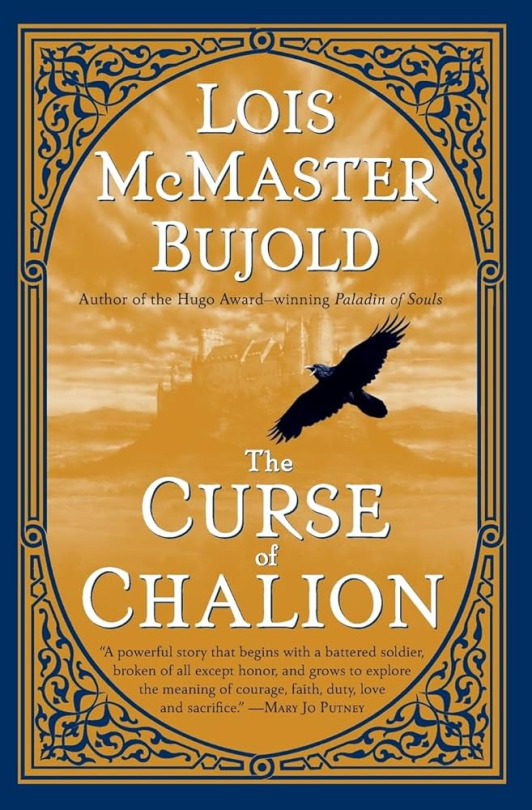
This is the first fantasy I ever read where the gods actually FELT like gods. Not only that, but there is a full exploration and analysis, interwoven with the plot, of many god "tropes" people complain about in the fantasy genre, questionssuch as "Why must the gods rely on a human clergy to do things if they are so powerful" or "If the gods know everything, why don't they prevent stuff happening in the first place?" or "Why isn't the god a deus ex machina solving everything?"
Honestly, the gods of Chalion are probably my number 1 representation of gods in fantasy novels.
Not quite "traditional fantasy" but of course, when dealing about the creation, exploration and subversion of gods, Neil Gaiman has to be brought up. More precisely two of his works, "sisters" so to speak: his Sandman comic book series, and his American Gods novel.
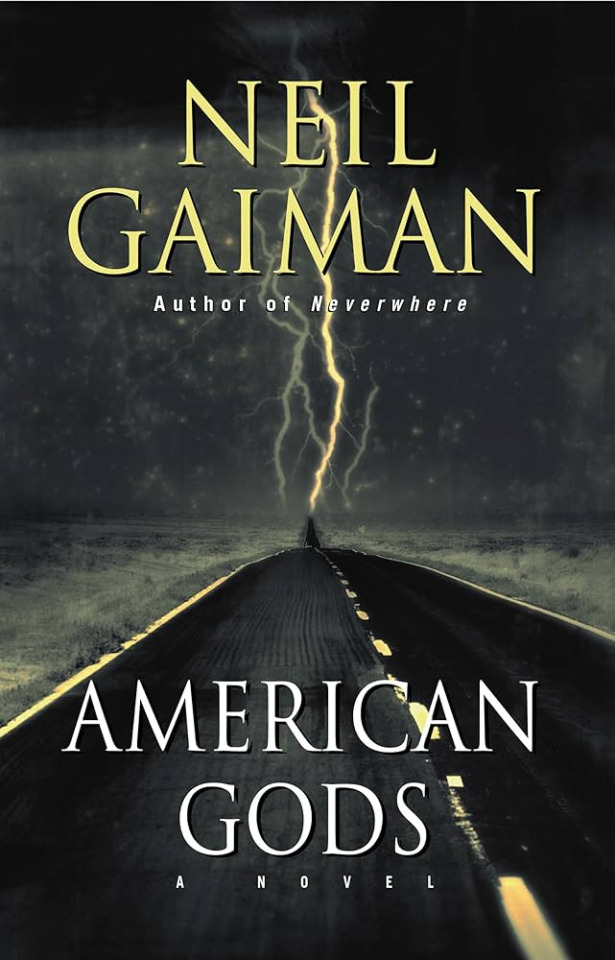
The Endless of the Sandman world are NOT gods, this is their whole point, they are ABOVE the gods... but they are still a marvelous and complex exploration of what it means to be the supernatural personification or embodiment of something - plus, the Three, of course. Sandman also introduces the topic that is fully investigated and played with in American Gods: the nature of divinity, what is a religion or a cult, the consequences and limits of faith, and the idea of vanishing gods, dying gods, and divine births... It is due to this deep thematic exploration that I decided to still include this novel, despite it mainly using beings from actual religions and folklores of the world.
If you want to keep the same motifs, themes and explorations present in Gaiman's work while diving into more traditional fantasy, you of course must go take a look at Terry Pratchett's Discworld.
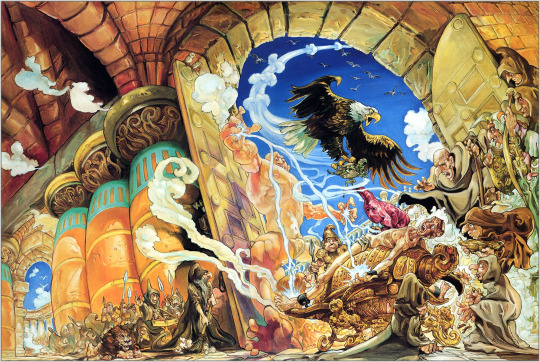
Who needs to present this series today? The most hilarious fantasy parody ever, the peak of humoristic fantasy, and yet the most thorough deconstruction and reconstruction of all the cliches, archetypes, tropes and settings of the fantasy genre.
Religion and gods are a recurring thread across the Discworld. One specific sub-series (the entire series being organized in "cycles so to speak) deals with the existence and adventures of anthropormophic personifications: the "Death cycle", following the titular character of Death, the Grim Reaper. Specific books I could suggest are "Mort", the first book of the cycle, "Reaper Man", and "Hogfather", about a psychopathic assassin trying to murder Santa Claus, and the Reaper having to replace the jolly old man... However, if you are truly interested in gods, and Pratchett's exploration of myths and religions, there is an unescapable trio. "Pyramids", about the fantasy parody of Ancient Egypt ; "Small Gods", about how Discworld's version of Jesus came to be ; and "Monstrous Regiment", about women having to enlist as men in the army in a war-torn, hyper-religious country... These three books are very thorough observations, parodies and deconstructions of what a "god" is, of what a "religion" is, and how the relationship between faith, the acts of faith, and the object of the faith...
You also have several books which involve Discworld's pantheon of gods while not actually exploring religious themes - just parodies of archetypal myths and the traditional appearances of gods in fantasy books: the first two books of Discworld, "The Colour of Magic" and "The Light Fantastic" ; "Sourcery", about Discworld'd version of the Apocalypse, or the illustrated novel "The Last Hero".
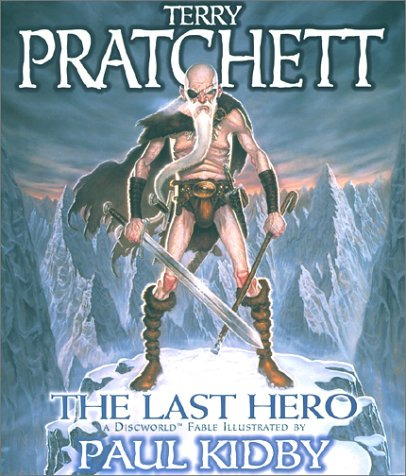
I said the first time I actually felt like I was reading about gods in fantasy was in the Chalion books - but there is another specific scene where the idea of divinity was perfectly conveyed. Now I can't speak about the whole series because I only read the first book: but the Fionavar Tapestry has some excellent godly depictions. Shout-out to the scene of the God encountering the Goddess - you'll know what I mean - it is an absolutely splendid thing.
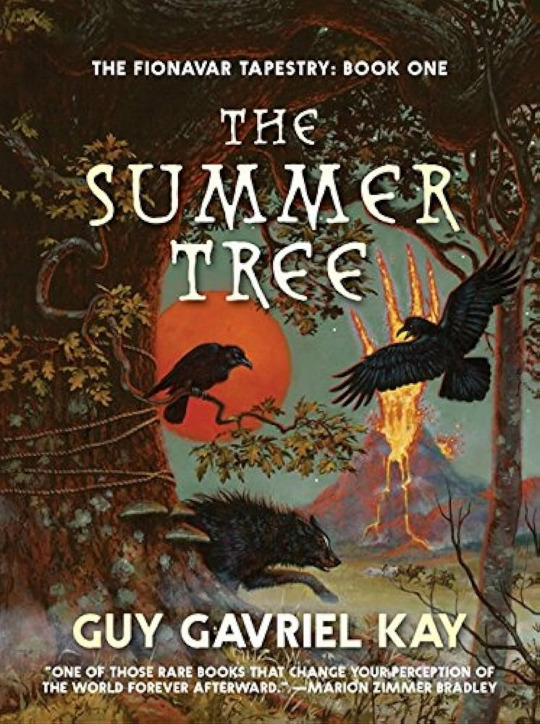
A little-shout too to Kingdoms of Thorn and Bone. It doesn't have "gods" in it... But it is the best and most accurate fantasy depiction I saw of "saints cult" and the whole way saints ACTUALLY worked in old European Catholic-Christianity. Even down to fantasy transpositions of the "folk-Christianity" which intermingles the saints with legendary figures and pagan deities. And while they are not gods, there are also some badass powerful supernatural entities/natural personifications that play delightfuly on old European myths. [It unfortunately is also ranking at the tops in the category of "Insanely promising series with most disappointing ending"]
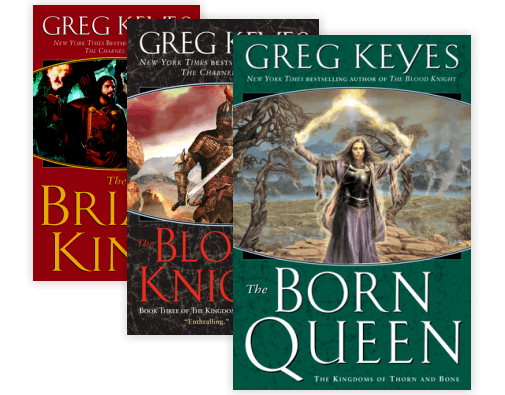
Shout-out, of course, to A Song of Ice and Fire - though Pointy Hat's video already covered it enough...
And to conclude, I will drop here not a fantasy book series, but a COMIC SERIES! Because yes, there are fantasy comics we should not forget about - one in particular I quite love being DIE.
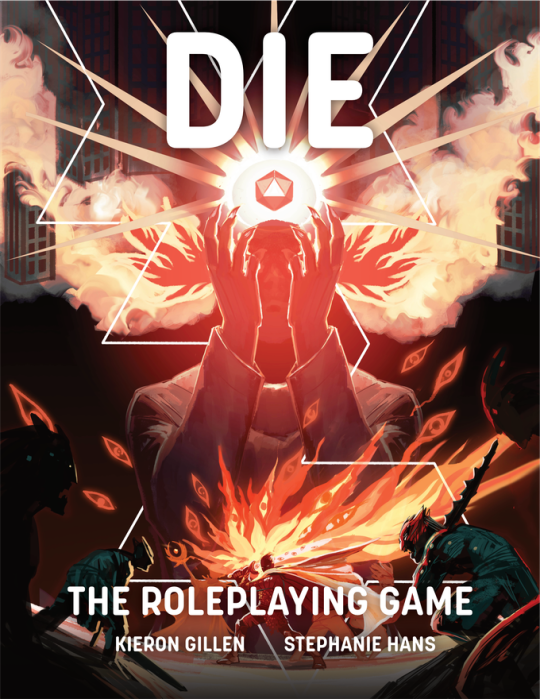
(Oh yes and it was also adapted as a roleplayng game)
DIE was from the same creator as "The Wicked + The Divine", and you can summarize it as "A darker and edgier version of Jumanji, where the characters are taken to a fantasy RPG world instead of a jungle" - while also gleefully tearing apart at all the "portal fantasy" Narnia-style... The world of DIE is a great homage, deconstruction and "dark parody" of the tropes, conventions and archetypes of fantasy RPGs - while the plot explores the various roots and origins of the modern fantasy RPG universe (from Tolkien to Lovecraft passing by the Brontë sisters). And as such it does include a pantheon of gods, tied to its own version of a "cleric" (here rather a tamer and "debt collector" to the gods)...
Now, while some of the clever worldbuilding and inventions behind these gods is subtly conveyed throughout the actual comic, unfortunately (or fortunately if you like these things) to get the full extent of it all you need to read the interviews, articles and bonus content located at the end of each issue - but trust me, it is worth the read, because the pantheon of DIE was specifically designed to twist and subvert the cliche archetypes of gods in fantasy RPGs. From the god of nature, who is not a "flower-loving hippie" but a giant ferocious bear ; to the common "god of light and goodness" who turns out to be a sinister and sorrowful mourner crying forever over the world, passing by my favorite - Mistress Woe, the "goddess of luck", except that she embodies bad luck and misery and is the spirit of the "natural 1".
Oh yes, of course I also cannot forget to give a shout-out to the one who truly made the mythopoeia genre what it would be today: Lord Dunsany, who not only was one of the forefathers of fantasy well before Tolkien (and without which Tolkien wouldn't have written the works he created), but also created the famous The Gods of Pegana - who is still to this day a full pantheon and mythology completely fictional, but also free of use since it falls in the public domain...
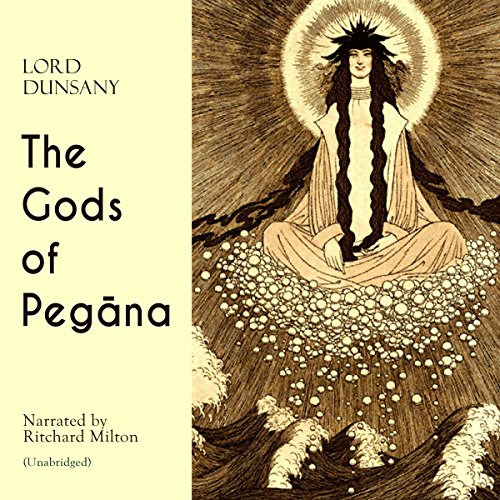
#fantasy#worldbuilding#fantasy gods#fictional pantheon#fantasy pantheon#fictional gods#gods#pantheons#mythologies#fantasy worldbuilding#fantasy works#fantasy books#fantasy series#fantasy tropes#fantasy references
9 notes
·
View notes
Text
If you've followed my blog for long enough, you might have noticed a running joke I occasionally dredge up, where I write "KIM WEXLER DOESN'T SING" in all caps.
First of all, this is kind of intended as a nod to how few concrete personality traits Kim has; how much of what she says and does in the early seasons is contradicted by her actions in later seasons, and just trying to find any through line with her charicterization.
But specifically, this is a reference to a scene from S4E10 "Winner", where Kim refuses to sing "Bohemian Rhapsody" karaoke with Jimmy (the song choice itself, seems worth studying). Jimmy has a terrible singing voice, but he doesn't allow any degree of self-consciousness to stop him from performing on stage. He belts his heart out, both in "Winner" and again later in S6E11 "Breaking Bad", seemingly to deliberately spite Kim on the latter occasion. And this relates to other ways in which Jimmy is much more comfortable showing vulnerability than Kim is; Jimmy cries much more readily than she does as well.
So with all that in mind, it might seem odd that I have Kim singing in her very first scene in "Slippin Kimmy". Here's the catch! Kim is alone in her car while doing this. Kim's aversion is to being perceived as weak or frivolous in public, and she still is shown to be reluctant to express herself so freely around other people.
Because of this, the Church Playhouse becomes an important motif over the course of Season 1. The antagonist of the season, Pastor Dawson, accumulates soft political power by finding people who are frustrated and disillusioned and helping them to reach their full potential, theoretically gaining their loyalty in return. Musical theater has been a powerful tool in this therapy (as well as communicating the religion's message), but Kim is resistant to this treatment. Because of this, song is always only on the periphery of the story; plays will take place off-screen, but Kim is never present for them; important scenes will take place with Kim happening to stand on the stage, but an audience is never present.
The overarching idea being that there are whole worlds of freedom and beauty Kim is able to participate in at any time, if only she will overcome fear/paralysis and perform the small bit-part she has in a grander story. A not-very-subtle metaphor for the criminal world and life in general. And Dawson might have had ulterior motives, but by trying to push Kim out of the shadows and into the spotlight, in his mind he was genuinely helping her. Because when all the world's a stage, stage-fright isn't just a matter of preference; standing idly by instead of taking on responsibility is a moral failing. Eventually Kim is forced to take on responsibility. In S1E7, she's dragged into a protracted ethical debate with a former member of the theater troupe, and in S1E8, she's taken Dawson's place in the pulpit, and must be willing to show vulnerability in order to deescalate a crisis.
So even if we never actually see Kim sing in public, she does end up performing for a crowd. She does, slowly but surely, become comfortable showing her true colors.
3 notes
·
View notes
Note
What are some ideas, elements of your worldbuilding, or plots you'd like to explore in rp, but haven't yet had a chance to?
Ooh, that's difficult. I'm pretty good at asking for what I want. That said, I have a very strong love for the idea of characters exploring K'war and experiencing it, whether as a kei or as something else, and while I have started some plots, threads, even tabletop games on the subject, I unfortunately have yet to get far with any. I like being the 'gm', if that makes sense, even if it's not actually a tabletop game, I love getting to work my worldbuilding and character building brain as hard as I can to pave the way for the other to explore freely and experience new things and have fun! It scratches the same itch as these world and character building asks I requested for my birthday. So, I suppose that's a sort of vague plot tendency I crave!
For specific worldbuilding aspects, I'd really love to dig into Midlands Kei religion and festivals. Midlands Kei refers to a wide set of technically-Imperials not as an empire but as a race/ethnicity without the actual imperialism and religious warfare that wrecked a lot of their culture. They are a race within the Imperial subspecies including the grasslands, southern mountains, and the capitol. Their cultural inspirations include a lot of Europe, not English, but Ukrainian, Irish, Welsh, even Armenian, and they worship deities of the wind primarily, but have a healthy admiration and following for all deities depending on the individual, Imperial and Sea faiths alike. They have more greenish skin tones, like Skrap.
In ancient times, they were actually more prominent than the reddish, sun-worshipping Imperials you think of now, due to their wider area of origin rather than the Imperials originally coming from a smaller, concentrated area, though Midlands kei population was always more sparse with small villages over a wide area, rather than densely populated cities like the Imperials. The Southern Imperials rose up and claimed the Midlands Kei as part of their culture, erased quite a bit, and then began slowly eradicating them over generations via eugenics ranging from subtle beauty standards to outright government action. That said, Midland Kei do persist and are present over a wide area even if in fewer numbers, and some of their bloodline have even made it into the royals. Many especially wealthy Imperials, especially royals, will act as if the Midlanders are fully gone and no longer exist/have fully integrated into the Imperials, a thing of the past. That is patently false, but they just kind of ignore it because it's inconvenient to their supremacy. They are the same subspecies, hence my calling them technically Imperial as that is the term for the land dwelling subspecies. That might change.
I have always had the Midlands kei exist as a history for the Imperials, but have only recently made a distinction between them and the Imperials, as originally I had the two sort of combined, but as my lore expanded, this no longer made sense. You may see mentions of Midland kei as Plains kei, or see me mention an Imperial has Plains ancestry, this is the same, as the Midland is full of, among other things, wide rolling plains and grassland hills.
If this was weirdly worded especially in the second paragraph it is because it is 6 am
3 notes
·
View notes
Text
Dune: Part Two (2024), Denis Villeneuve
BIPOC
Dune: Part Two and the Discussion of MENA Representation
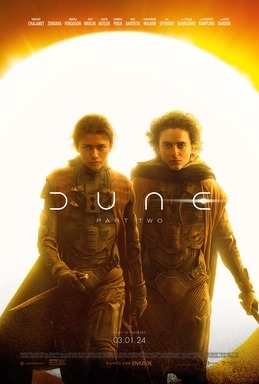
Review Link: https://www.rottentomatoes.com/profiles/ratings/WYdFQDHR9tGJf9wiWXh8ZFR8iGGCaLHwBhawIZ0ubbCexiapiJVTWOFeeCzdIpjhmXFp4u11CYNTl4fOPSWQfkWC6bIb6SyBFVXfO4TZzc4m/movie
youtube
Following its much-anticipated release, the long-awaited second installation of Denis Villeneuve’s Dune adaptation has proven itself a sci-fi spectacle that must be experienced to be believed.
It’s an outrageous combination of awe-inspiring cinematography, adept writing, and the talents of an all-star cast topped off by a score by veteran composer Hans Zimmer. The result: a feast for the senses that presents the stark realization that films on a scale this epic only come around once or twice a generation.
For those unfamiliar with the source material, the full extent of how truly epic this is may be lost. Part of the beauty of Dune is that Villeneuve simplified the story in such a way that it can be understood by moviegoers with no connection whatsoever to author Frank Herbert’s novel, or ever-having-seen the adaptations by David Lynch or SyFy (f/k/a Sci Fi). Within this simplification, the story of Dune doesn’t become reductive, nor are essential plot points lost. Like all adaptations, there are components lost, however even compared to Peter Jackson’s Lord of the Rings it can be argued that fewer creative liberties have been taken, and the ones that have been are worthy of discussion.
Some of these changes are adaptations inherent to the modernization of source material written by a white man in the 1960s. While science fiction has arguably been a haven for progressive ideas, it still faces the limitations of the author's society and the popular sentiments of their time.
Environmentalism, non-traditional relationships, the loss of innocence, and the power of femininity are all topics brought to life by Frank Herbert in his original novel–adeptly at times, sloppily in others. Decades later, Villeneuve irons out some of the flaws: the white savior narrative, the depiction of women, and the dreadful attempts to depict witch children.
These changes along with the skillful dedication to a remarkable piece of science fiction create what will undoubtedly be looked upon as a classic in due time, yet has been met with some degree of controversy for its depiction–or lack thereof of one group.
Created in their image, the Fremen were shaped after those of the Middle East and North Africa (MENA), with the Islamic faith making up aspects of their religion and the Middle East serving as the very essence of Arrakis. Yet in casting, MENA actors were notably absent from these roles, and the focus on much of the Fremen culture was notably absent, leaving many to question why.
Dune’s Roots in the Middle East
Written in 1965, Dune is considered one of the most remarkable science-fiction books of all time. Part of this significance is because, in 1965, it was a book that attained popularity while being so fervently against the cliches present in normal bestsellers: moral absolutes, Eurocentrism, and Western imperialism.
For over a decade, we have now come to cherish and normalize media that centers around morally gray and ambiguous characters. We actively seek out things that de-center white, straight, and cisgender narratives. Yet in 1965, a world wherein the United States had barely de-segregated, homosexuality was outlawed across most of the world, and Christian colonialism efforts still ran rampant across many nations? A book challenging the status quo was impactful.
The representation of MENA culture is intrinsic to everything that Dune is, from its language to its scenery to the music present in Villeneuve’s adaptations. Set primarily on the desert world of Arrakis, Herbert based the topography of the planet on regions of the Pacific Northwestern United States, yet its allegorical implications are clear.
Arrakis is home to melange or “spice”, a heavily-coveted resource that grants extended longevity, bestows metaphysical abilities, and fuels interstellar travel. The latter is perhaps the most commercially beneficial of the three, and drives colonization of Arrakis, as well as the oppression and subsequent eradication of its Indigenous peoples.
Within his writing, Herbert created a clear mirror of our own world: a desert region, plagued by war, aggression, and despoilment of the environment all for the sake of natural resources. In our own world, that resource is oil, and our Arrakis is the Middle East.
Arriving just as environmental advocacy began to take off in the 1970s, The History Channel states “Many environmentalists interpreted Dune as a critique of the oil industry, with Herbert’s friend Willis E. McNelly writing that the empire’s reliance on spice can “be construed as a thinly veiled allegory of our world’s insatiable appetite for oil and other petroleum products” (Greenspan 2024). Perhaps more salient are the linguistics of Dune, which are directly composed of Arabic words. Throughout the book, both the Fremen, the Indigenous peoples of Arrakis as well as other factions of the world are described using Arabic language. Manvar Singh writes:
“The language with the greatest influence in “Dune” is Arabic. In the novel, the Fremen use at least eighty terms with clear Arabic origins, many of them tied to Islam. The Fremen follow istislah (“natural law”) and ilm (“theology”). They respect karama (“miracle”) and ijaz (“prophecy”), and are attentive to ayat (“signs”) and burhan (“proof”) of life. They quote the Kitab al-Ibar, or “Book of Lessons,” an allusion to the encyclopedia of world history penned by the fourteenth-century Arab historian Ibn Khaldun. Central characters are dignified with Arabic names. The colossal sandworms are called shai-hulud (“thing of eternity”). Paul Atreides’s sister is Alia (“exalted”). Paul himself is known as Muad’Dib, an epithet that resembles the Arabic word for teacher (mu’addib), and he is fabled to be the Lisan al-Gaib, translated in the book as “Voice of the Outer World” but which, in modern Arabic, means something closer to “Tongue of the Unseen.”
Then of course comes the music, composed by industry titan Hans Zimmer who broke his longstanding alliance with director Christopher Nolan to focus on Dune and Dune: Part Two. In creating his score, Zimmer explored a full range of instruments in a way he claimed he had not since scoring The Lion King. Utilizing vocalists, an array of culturally diverse instruments, and spending ample time listening to the sounds of the desert, he synthesized the music together to intentionally create a soundtrack intended to mimic the experience of a spice-induced trip in a desert sandstorm, embraced by the energy of the divine feminine.
An Absence of MENA
With the depth of these roots in Middle Eastern culture, it would stand to reason that Dune would feature a sizeable cast. In addition to the Arabic language, Fremen religion heavily mirrors Islam, and while there are certainly Caucasian converts–we are focusing on a war for Arrakis and its Indigenous peoples.
Upon first glance at the Fremen in the first installation of Dune, we see a spattering of brown and black faces. Most notable are actress Zendaya who is biracial, and Javier Bardem, who is Spanish. Further introduction to the rest of the Fremen reveals similar casting choices among billed actors.
It’s straightforward: “Despite the film's obvious inspirations, there are no leading actors of Middle Eastern or North African heritage.” (Shah, 2024)
And why does this matter? When we beg the question of the difference between appropriation and appreciation, the deliberation includes questions about participation. Without the participation of the cultures involved, representation warps into fetishization at best, and appropriation at worst.
Dune is a tale that warns us about the harms of colonialism, environmental despoilment, and religious extremism. Villeneuve’s version takes care to approach the topic of colonialism with extra caution, approaching painting the Fremen not as a singular unit that can easily be converted by the right white savior, but as a multitude of people with different beliefs. Some fundamentalists believe deeply in their faith and follow the direction of Paul and the prophecy instilled (falsely) by the Bene Gessirit. Then there are the detractors like Chani who have seen attempts at colonialism before, and who shy away from religion for that exact region. They reject Paul’s so-called place as the Chosen One–and any outsider who should lead them.
To make these changes shows consideration on Villeneuve’s part. To fail to recognize the importance of casting actors of Middle Eastern and North African descent in a story directly inspired by a culture based on the Middle East and North Africa shows a distinct lack of it.
A New Decade of MENA Representation
So, why such a prolific absence of MENA representation when it would truly make an impact? We need to examine two factors 1.) the overall distancing from Islamic culture within Villeneuve’s adaptation, and 2.) how filmmaking in a post 9/11 world has changed the representation of Islamic characters.
As an adaptation of Herbert’s novel, Villeneuve takes the traditional liberties with the source material that a director is known for in bringing a book to the big screen. The core tenants remain, and many of the most important phrases and elements are retained. Yet to make the adaptation accessible to audiences unfamiliar with previous adaptations or the book it has been simplified.
This simplification allows Villeneuve to pour energy into enhancing other aspects of the film. He drastically expands upon the female characters within the film, giving them purpose outside of appeasing Paul, bewitching men, or narrating his life.
With adaptation comes a loss of the “finer details”. In addition to the distinct lack of MENA actors, there is a drastic reduction in the language, and of course, scenes depicting Fremen's way of life and culture. These include rites of inheritance, polygyny (not to be confused with polyamory), and the decidedly not-Islamic-inspired ritual orgy that occurs following Jessica’s confirmation as the new Mother Superior of the tribe.
These departures (the orgy notwithstanding, undoubtedly shed without a thought to maintain the film's PG-13 rating) are but a few of the cultural aspects sanitized from a story showcasing Arabic inspiration. Though it’s impossible to diminish it completely. Looking back through Villeneuve’s background, we can speculate on his reasons for this and perhaps consider whether it was done with intent.
Following the September 11th attacks, Hollywood faced years of missteps in the representation of MENA characters onscreen, who were then stereotyped in the roles of jihadists, an imminent threat to the West for years to come. It didn’t matter whether the film took place in the past or present, the ideals were functionally the same.
A notable example is Zack Snyder’s 300, adapted from Frank Miller’s graphic novel of the same name. Published in 1998, Snyder brought the film to life in 2006, where it received mixed critical reviews, and uproar internationally for its depiction of Iranians in the Spartan and Persian Battle at Thermopylae.
Brazilian actor Rodrigo Santoro portrays the antagonist King Xerxes as an effeminate gold-painted and pompous self-proclaimed God-king who seeks to drive forward a kingdom of sexual slavery. Leonidus, portrayed by Gerard Butler and his 300 men stand fierce to beat back Xerxes' soldiers and defend the good people of Sparta from slavery, the injustice of war, and the bleakness of what Xerxes promises.
Yet the historical inaccuracy is ripe, and rewritten to appeal to Western notions of glory and sentiment. Historian Gary Leupp of Tufts challenged the film, explaining” In short: 300's depiction of the battle of Thermopylae is not merely inaccurate, as any film adaptation of a graphic novel has the perfect right to be. It's what the Iranians say it is: racist and insulting. It pits the glorious Greeks with whom the audience must sympathize against a "mystical" and "tyrannical" culture posing an imminent existential threat. It is, de facto, an anti-Persian/anti-Iranian propaganda film” (2007). In his statement, he explicitly breaks down the inaccuracies regarding the history of Xerxes and Persia versus the representation seen onscreen, which can be found in the citations link below.
300 was but one example on the big screen. The late ‘00s/early ‘10s was the period of high-stakes television and as well. Shows like Homeland brought A-list performers like Claire Danes onscreen and normalized Islamophobia. Numerous forms of media following the attacks have depicted Muslims as “extremists, barbaric, insidious, and untrustworthy”.
What many of us forget about is the very simple passage of time and the birth of new generations. Within a few short years, Gen Z has arisen, all but forgetting the pain and anxiety born of the September 11th attacks and seemingly everything that came with it–after all, none of them can even remember the day.
In addition to that they are a generation born amidst an era of rapid information cycling and trend generation, and place an importance on publicly presenting their morality on their sleeve. All of this combined means the lessons, hardships, and mistakes of the past–can be forgotten quicker than we can imagine, and expectations to adhere to newly defined ideals of what is politically correct are defined seemingly overnight.
It can be hard to keep up with. Especially if one is still concerned with the trials that seemed so important–and still are–ten years ago. Given the thought Villeneuve put into expanding upon aspects of Dune, it is difficult to imagine he didn’t put thought into how issues of problematic representation of MENA could arise.
Ali-Karjoo Ravary writing for Al Jazeera pointed out during the release of the first installation of the film that the brand marketing changed up some of the wording of the film, stating “a crusade is coming” which marked an intentional difference from the book’s statement of “a jihad is coming”. Wording matters, as “Herbert’s nuanced understanding of jihad shows in his narrative. He did not aim to present jihad as simply a “bad” or “good” thing. Instead, he uses it to show how the messianic impulse, together with the apocalyptic violence that sometimes accompanies it, changes the world in uncontrollable and unpredictable ways.” (2020)
Of course, Herbert’s interpretation is an empathetic view and not one shared by many people with biases against those who pray to any god without white skin. While he tries, Paul ultimately succumbs to his will and manipulates the Fremen into following his aims to declare war on the galaxy. As the Fremen are proven to be some of the most formidable fighters we have seen and Paul’s manipulations are aided thanks to religious seeds planted by his mother’s order, this becomes a jihad in every way. He is the prophet. They are his holy avengers.
To cast MENA actors in these roles would once again fill slots of extreme religious fundamentalists, and this time, ones following a white man–no matter how nuanced the film has been made. Granted, as actors, they have a choice. Choosing representation is better than having none, however, if they had the conversation would likely then become “Dune: Part Two is a stereotype of MENA actors”.
Is there a middle ground? There is of course, and this is where we notice the overt failure of casting directors in Hollywood. Following the criticism of the first film, Part Two touted its hiring of Swiss actress Souheila Yacoub who is of Tunisian descent. She played the role of one of the Northern Fremen, who stand against Paul’s attempts to co-opt their culture. Yet from the beginning, why not more featured characters? Why not Stilgar, Chani, Jamis, or even a surprise role similar to the one Anya-Taylor Joy played?
While post-9/11 Islamophobia may have ebbed before the War on Gaza, we’ve entered a time where even the Hollywood excuse for “star power” fails when we remember the global world we now live in. Whether they are stars in their land or Americans with parents or religious heritage, there’s little to no excuse for the continued erasure and diminishment of culture onscreen–and in time Hollywood will come to know it.
Citations: https://www.rottentomatoes.com/profiles/ratings/WYdFQDHR9tGJf9wiWXh8ZFR8iGGCaLHwBhawIZ0ubbCexiapiJVTWOFeeCzdIpjhmXFp4u11CYNTl4fOPSWQfkWC6bIb6SyBFVXfO4TZzc4m/movie
1. Maxwell D. Post-colonial Christianity in Africa. In: McLeod H, ed. The Cambridge History of Christianity. Cambridge History of Christianity. Cambridge University Press; 2006:401-421.
#thevisibilityarchives#tva#bipoc#mena#islam#arabic#dune#dune 2#frank herbert#sci fi#movies#films#essays#diversity#representation matters#Youtube
3 notes
·
View notes
Text
Seeing manga caps recently shared on Tumblr:
So, the Moon ends up looking like the Soul Eater moon because people think that's what the Moon should look like, so that's what it ends up looking like.
... ... ...
No. That doesn't even work within the rules set out by this story, the physics rules or the thematic rules.
TL, DR:
By the physics rules, that means you would need consensus to get the Moon to look like that, that humanity as a whole agreed it should look like that...but you're not going to get 100 percent agreement, so the Moon shouldn't be stuck with only one shape, by this quote-unquote "logic," there should be various forms of the Moon. Ironically, the phases of the Moon before Benimaru and Shinra did their shit would be more fitting with the "if you can imagine it, it becomes reality" physics of this new world.
And speaking of the "if you can imagine it, it becomes reality" physics, that is also the theme of the story: if you can imagine it, you can will it...until you can't anymore, because enough other people think the Moon should look like this, you don't get to contribute to imagining how the Moon should look, and Shinra plays God and creates Lord Death as God, hence limiting the imagination and free will, and, God, I hate this fucking series so much.
And now, the extended rant:
If five people think the Moon should look like a smiling crescent but one person thinks the Moon should look like a crater-covered full moon, how do the now more cartoony physics work? Is this determined democratically, or even by mob mentality, or is a consensus reached among the numerous people's thoughts, or does the combination of so many people's minds force a hive-mind mentality where the most intense imagination or the most intense thought wins out?
The argument by Hibana is that enough people think this way, therefore, it turns out this way. The idea is supposed to be similar to, "All humans yearn for death, hence why they keep burning alive."
Only, I never bought that argument within Ohkubo's story either.
It's similar to his argument within his story that "Japan is so atheistic" (ignoring people who are spiritual or who are part of an organized religion).
Or his argument that "the ideal form of sex appeal is a 17-year-old girl." (Christ, could someone please sit this shitty artist down and explain how fucking creepy he sounds and how his asinine thought process ignores people who are not attracted to 17-year-old girls, and that even if Tamaki was an adult this argument assumes every single person in the world sees sex appeal as being presented in the form of a woman, which ignores people who are not attracted to women or who are asexual.)
Like these two (fucking stupid) arguments, the argument is, "Enough people think the Moon should look like this, therefore it does." It assumes a shared thought by all people--when that doesn't hold here with the Moon. This isn't even like Scott McCloud's argument that we imagine a human face to have a basic number of shapes and hence by getting to a good middle ground between detailed and simple we can have a presentation of the face that is nearly universally agreed upon to look basically like this. The Moon changes shape--it is not always crescent, so that doesn't work to have the Moon now look like the Soul Eater moon, but the Moon also isn't always full, so you need to allow variation.
And since the Moon now remains unchanging, this pretty much only reinforces one detail out of this entire manga: the refusal to give free will. Shinra decided unilaterally to create Death, to get rid of pyrokinesis, and to make a more cartoony world full of monsters and the resurrection of some really awful people. He played god. He didn't give people a choice of having Lord Death as the new capital-G God. He didn't give people a choice whether maybe they want to keep their pyrokinesis (since enough of them managed to do so without turning into Infernals or abusing the power). He didn't give people a choice about whether they wanted killers like Rekka running around free and without punishment or atonement for what they did.
It is just, "Here is the Moon, because enough people think this is what it is, and fuck you if you are in the minority, this is the world now, deal with it."
It's like that children's story about the poor kid told that flowers have to be this color and only this color, thereby sapping any creativity out of them: "This is the Moon, you don't get to imagine it looking any other way because enough other people think this is how it should be, fuck you for trying to imagine it as anything else, ignore the reality in front of you and just accept how other people see it."
(Some real "Young Goodman Brown" crap right there.)
No wonder this is the same story that said, "Fuck you if you don't like this soapbox speech about sex appeal--this is the world now, deal with it."
It's like Ohkubo looked at the smallest amount of criticism against his work, and looked at whatever traction the Me Too movement had anywhere in the world--and flipped his lid, deciding that, after being (correctly) criticized for how he wrote Tamaki (and the boring, unoriginal, and mostly offensive fanservice crap in Soul Eater, and the completely offensive and unjustifiable fanservice crap involving minors in Soul Eater), he would say, fuck you if you want the world to be better, someone will just impose their will for how they think the world should look and be, and you don't get a say.
Ohkubo wanted to play God, he played God in his own story: he went full Dave Sim Cerebus on us, and created a story that was just about as shitty.
And the person who imposed his will on the world, Shinra, ends up becoming the target for enough girls and women who want a harem with him.
Barf.
God, this makes me hate this series more.
2 notes
·
View notes
Text
When The Devil Weds [A Negan X You Poem]

*** DUE TO THE INCLUSION AND VARIETY OF MATURE/EXPLICIT/GRAPHIC CONTENT WITHIN MY FANFICTION PIECES, (AS MENTIONED BELOW,) I MUST STRICTLY INSIST THAT YOU ONLY CONTINUE READING IF YOU ARE 18 YEARS OF AGE OR OLDER. MY FICS ARE INTENDED FOR ADULTS ONLY. THANK YOU FOR YOUR COMPLIANCE. ***
NOTICE: The following post is a work of fanfiction for The Walking Dead (television show) universe. This piece may include mature and graphic/explicit content of varying categories and intensities (specifics are outlined in the, “Warnings,” section beneath the, “Keep Reading,” cut.) If you do not wish to view such content or are in any way bothered by the possibilities of subject matters mentioned above, I politely request that you not proceed past the, “Keep Reading,” cut. If you DO wish to read this fanfiction piece, please continue as normal. Beyond the cut, you can find all the story details and info, as well as the fic itself. Please enjoy, and thank you so much for reading. And as always, reader discretion is advised and encouraged.
Author: @heart-like-a-haunted-house - (MASTERLIST HERE)
Wanna read/interact with my fanfictional works elsewhere? | My AO3 Fanfiction Collection | My AO3 Profile |

Piece Title: When The Devil Weds.
Chapter/Part/Section: This is a one-shot only. Please enjoy! :)
Fandom: The Walking Dead (television show universe), Negan (television show version/JDM’s portrayal), Jeffrey Dean Morgan.
Main Pairing(s)/ Main Character(s): Negan X Reader, Negan X You, Negan X Original Character. No specified gender for Reader/”You”/Original Character.
Genre: Self-insert/Reader-insert, One-shot, Poetry/Poem, angst, fluff, and sexual undertones/overtones.
Word Count: Around 640 words.
Full Story Synopsis: In this world, the dead outnumber the living. In this world, saints and sinners tread even ground. And in this world, things aren’t nearly as simple as a “saints and sinners,” list. Negan is often known as the worst of the worst in these terms. But as his seductive charms encircle your senses, you are reminded that everyone has a past and people are so much more complex than perceptions may project.
WARNINGS: Swearing. Sexual undertones/overtones. Metaphors/references involving devils, angels, and other ideas that may have religious/spiritual ties for some. And Negan being Negan ;).
Author’s Note: Hey there! I’d say I’m back with a new fic, but in all honesty, this piece isn’t new. I wrote it a couple months before I started working on The Burden Of Caring. This poem was actually the work that acted as the catalyst for some of the themes and events present in that story. I just always felt nervous when it came to posting this because from what I’ve seen, poetry is a very unconventional fanfiction format. But thanks to some reassurance and kind words, I decided to bite the bullet and go for it. So, here it is! Even though I’m still crazily nervous about releasing it, haha! And please excuse my multitude of posts about it prior to publishing. I just wanted to be sure that people were interested in seeing something like this. Anyway, consider this my offer of apology for taking so long on the next chapter of TBOC. I promise It’s coming soon! I just want it to be as good as possible for you guys! In the meantime, please let me know what you think of this, don’t be shy! A big thank you to those who helped me stay encouraged as I wrote/edited this, and to all who read the finished product. You little rays of sunshine are all amazing! Now, on with it. Happy reading!
Other Notes: Please keep in mind, the metaphors/references involving devils, angels, and other ideas of the like are used strictly for fanfictional purposes. It is all for the sake of entertainment only. They are in no way meant to promote or discourage any real-world worship/religion/religious/spiritual practices or ideals in any way. Also, the reader is written to be of, or above, legal consenting age (18+.)
Tag List: [NONE]



You know what they say about holding hands with the devil, “Well, at least his hands are warm.” And in this cold world, that warmth goes a long way, even if it burns. You know what they say about the devil’s tongue. Silver, sharp as a dagger, and cool as ice, Venom drips from his every word, but his poison is laced with sugar. His hot breath and whip-like whit more intoxicating than any liquor. You know what they say about the devil’s eyes. They’ll hypnotize you, pull you in, Freeze you in place, Yet sear your every nerve, fill you with pain and pleasure. Then, with the blink of an eye and flick of his brow They’re a mirror. You reflect him, he reflects you. One image for but a moment. Maybe two separate beings never were. Has he ever had tear-filled eyes, Like you’ve had so many times? You know what they say about the devil’s voice. It’s a forbidden song, written just for the attention of the listener. Even the most foul words begin to caress your desperate, hallow ears Like the gentle, yet eager hands of the lover long yearned for. His words are somehow both airy and iron-clad, The delicate whine of a violin drifting between the thunderous claps of a bass drum. You feel your body begin to sway to the beat of his song As he lowers his voice to nothing but a whiskey-scented whisper, “Lean in closer, my darlin’. I’m not here to hurt ya’. Just let me hear your pretty little tune once more. C'mon now, don’t make me fuckin’ wait.” But is that his voice you hear, or is it your own? You know what they say about the devil’s smile. The angels cried in mourning when they could no longer gaze upon it, no longer bask in its strange yet familiar glow. That smile, spread across his face like a welcoming banner. Danger cloaked in safety, safety cloaked in danger. Those gleaming teeth, each one sharpened to a seductive point. That skilled tongue slides over them with delicate flourish. Maybe they had been splattered with blood only a moment before But now, no one would be the wiser. You are again a mirror, sparkling and oh-so-clear Maybe you always had been a little sullied too. Sturdy you stand at the precipice, Blood long ago made even virgin hands unclean. Toe to toe, you stare into the shadows of this dominant in equal fairness and understanding. The devil was no devil at all. Was nothing but a man, Taken for all he had, Left with nothing but his many talents. So, he surrendered his reminiscent, shattered fragments to the unforgiving world that had only taken. Indeed, he gave back, returned ten-fold. Not a soul would live to say otherwise. To everyone who crossed his path He gifted his endless bounty of blazing charm and beautiful wickedness. That smile his most deadly weapon. You know what they say about holding hands with the devil, With this man. Only those who have truly fallen for him seek to hold tighter. But in this frigid wasteland, As you slip your hand in his His fingers lock in place He promises he’ll deliver. So, does it matter if holding hands with this mortal man, This immortal devil Has made you just as viciously wicked as he? Do you now carry the weight of his crimes? Could loving him absolve him of his guilt? You of yours? No, never. His glittering grin shines in your pupil, His grip on your hand and heart tightens. Does holding hands with the devil make you a sinner? And at this point, does it matter? Because nothing matters if you’re dead You are his because you get that. You are happy because shared depths go beyond that.
#fanfiction: heart-like-a-haunted-house#fanfiction#poetry#when the devil weds#negan x reader#negan x you#negan fanfiction#negan
0 notes
Text
The History and Importance of Women’s Literature Literature was one of many spheres in which women were a minority in representation in the 17th century. The tradition of women’s literature was ignored by society for centuries. Women writers were not considered profound creators. Their novels were perceived with significant opposition. Some writers like George Eliot (Mary Ann Evans) had to write under male pseudonyms to be considered solid writers (Basirizadeh et al. 3). George Eliot’s novels became phenomena in the 18th century due to their novelty and deep religious meaning. This has shown that women’s literature has a potential for development. Women held an inferior position at that time. The stigma for women’s literature appeared because women produced most works for women and usually addressed issues actual to the female audiences at that time: marriage, children, wealth, and family (Rivera). The inferiority of women did not belittle their role in society and literature. Some women writers raised topics such as religion, inequality, infidelity, and progressive critical discourses within the community. Powerful and influential topics added value to the existing body of male-dominated literature. Women writers had written powerful and multifaceted characters that resemble real life, which was critical for the development of literature. Therefore, their input into the literature is essential to understanding the time of the 17th, 18th, and 19th centuries. Books with unusual and feministic views allowed other women to understand their unique societal role and realize the inequality they experienced. Although there was a small range of work and life for women’s choices, most of them did not recognize their real opportunities in life. They were expected to marry and devote themselves only to their families. However, some women had chosen their career and self-expression as their main aim in life. In women’s novels, writers’ social criticism represented their disagreement with existing social norms. Society was ready to blacklist and underappreciate women writers because they usually had written controversial opinions on war, existing social norms, and too progressive thoughts for their time (Rivera). A vivid example of social prejudice against women is the controversial reaction to the publication of Sarah Fielding and Anna Laetitia Barbauld. Both writers disagreed with the involvement of the British Empire in the Napoleonic Wars. Another example of a big step in women’s literature is Virginia Woolf. In her work A Room of One’s Own (1929), she presented the provocative idea of women being in the literature world. Her narration provided a fictional character who gave the concept of the importance of women in literature (Rivera). She argued for a ‘room’ in the man-dominating world where women were the epitome of beauty and beloved ones (Basirizadeh et al. 3). Her work has created an entirely new movement that served as the inspiration for unique journals and the launching of recent publications dedicated to women in the literature. Women’s Contribution to Early American Literature Women’s literature presented various specters of issues that men had never experienced; therefore, female novels offered a new perspective on American life. In hard historical times for America, women’s literature was a mirror for every social problem that society had. The country underwent political, economic, and social shifts, substantially changing people’s minds (Snyder). The war losses and Industrial revolution included women in the workforce, forced them to work in challenging industries, and caused many children’s deaths (Basirizadeh et al. 5). Therefore, the feminist movement and literature had a significant meaning in the minds of the American population. Women’s literature wanted to create powerful and self-sufficient female characters representing the intelligent and strong women of the Industrial time. Read the full article
0 notes
Text
10/20
We’re leaving the villa. Mom is not thrilled to be leaving but we’ll be enjoying the sights and foods on our way back to Rome, hopefully overshadowing the saddness of leaving such a place.
Before I forget, it’s Porcini season in Italy, so most restaurants we go to have featured dishes with Porcini. Of course in America we use them for burgers mainly, here it is presented alone with salt or marinated in fish sauce. If you don’t like mushrooms, don’t go to Italy in October. We can’t escape them, not that we want to. Another fun thing we’re here for is olive picking season, so most olive farms are being worked, leaving no room for tours of goat farms or wineries; the entire country is extremely busy making olive oil for everyone. What an amazing treasure. In this way, I don’t feel like I’m missing out, I feel like I’m here for the cultures busiest season and for that I am accepting in the lack of tours we’re on. Plus, who wants to do touristy things anyway? We went to the Vatican and Basilica, think we’ve done enough of that.
I asked Carlo last night to visit me in my dreams to test if religion is real or not, instead, I didn’t sleep at all. Is that my answer?
We’ve just arrived in Amelia, Madi from the villa told us to go here for their ancient city wall. In this town, they have a wall built around it that is the most perfectly preserved ancient wall in the world. You can’t enter by car, you have to park below it and trek the ten minute walk through the small city to the square where the duomo is. It’s grey outside again, but every now and then we get patches of sun, and to me this makes moments in the day that much more special. I have never had to pee so much in my life.
I have not sat on a toilet this big ever before. The seat is so wide I don’t understand who made this model to be universal. It’s not.
Anyways, we went to a cafe per Madi’s suggestion, that she has an apartment above as well. Hers is the only apartment with a balcony. I think I want to become Madi. She said she lived in the states for 20 years and wanted the closeness of her homeland again, but something that was just hers. Something she owned by herself that she could call her own hill in Italy, since she was originally from Genoa she chose Guardea to be hers. Then the birth of the villa ensued. Then another, then another, and a few apartments. She was a professor at Yale, having her daughters attend the school as well. This family is the genuine idea of wealth and health. Passing down the hearts that are full of Italian soil and American university brain abilities. I believe if anything, that god gives her whatever she wants because she is a pure form of light and love, only meant to spread kindness and speaks so elegantly when she does you have to listen. This is what beautiful people are like. You will stop whatever it is you’re doing to be present with them.
Amelia was beautiful and special, like Madi said. Small and perfecto. I met a man named Marten who used to live in Beverly Hills, his dad was Greek and his mother Italian. He now lives in Amelia, three minutes from the main square. He told me I had a sweet soul and a huge heart. We talked for a good ten minutes while Taylor enjoyed a glass of wine and mom was taking baby sips off of it. He told me to stay active and do sports because we only live once, to travel everywhere, and love everyone. I hugged him and took him over to meet the girls, where upon leaving, all got hugs too. Marten touched my soul today, he waved me over to the bench he was sitting on after seeing me take photos of a saint from 2002, unnamed. I gladly walked over, we had seen him from afar earlier, working out with elastic and doing arm stretches. We commended him as he must’ve been almost 90 years old and I was unaware I’d later be having this gorgeous conversation with him about all of his travels. He’s been in Amelia for 4 years now, it was kind of hard to pin down where he was before Amelia because his accent was so thick. But he told me he wanted to be an actor in Los Angeles, and that he’d modeled for Gucci; probably in the 80s if I could guess. He told us to write him a postage, so after lunch my goal is to find him a post card that reminds me of him, and write to him a goodbye from us and to Italy itself. I can’t wait to send it. Though I hadn’t gotten his last name, I trust the higher authorities to send it straight to Martens front door in Amelia. What would life be without strangers?
Madi texted her friend that owns a restaurant in the middle of the woods in Umbria, close to Amelia, to save a seat for us at the restaurant he owns. 30 feet from where we sat were local cows, chickens, sage bushes, all the necessary ingredients to their menu. Talk about farm to plate. I could walk to the steak I was eating and say hello, thank you.
0 notes
Text
Competing With Computers
As I load up my free-to-play, western-made gacha game, noticing its patterns coinciding with the present-time and how its grab bag mechanics effectively sustains itself through dark patterns, psychological tactics, etcetera, it pretty much is a play-by-play rhetoric on the movement of time and space via roads and local construction, engineering, architecture, and the great minds behind design. Aesthetics, on the other hand, seem to be about building a life for your own via identity and creating from the things that you want, have interest in, have an invested attitude and physique via the elements that move within your body, within your sphere of influence, and within the gates of teleportation that allow outsiders into our world. The doors are open, always it may seem, towards a trajectory that implies we are one as humanity, a species not separated by race or space, and only we are separated by ideas that contribute to our aesthete foundations. These patterns and these identities, from design and its collated answers to time and its flow, to the aesthetes and their homes built in the style made by either conforming to ones own ideals or borrowing from cultures we are envious of or not essentially part of in body, yet do so in mind and heart, this seems to be the basics of life that no one can take away from, and which is why a certain population will gravitate to gacha games to satiate that "lust for life".
However, one certain aspect of these games cause the dark patterns in it to be blatantly destructive, like a bomb waiting to implode on its own, leaving a nuclear aftermath. We see this in games that go boom in spite of its huge following, in spite of the popularity that sustains it. I...can't give examples for the time being, but the time being itself, is the cause of these problems. It is, what may seem to be, an expiration date that only developers of brilliant minds are aware of in absolute totality. It is the very nature of these games that causes us to question whether the time spent on it is advisable, knowing full well that "it ends when it ends". It's like life and death, and to be writing about that at this moment, about these games, modeled after such lives that are fleeting, ubiquitous, ever-so-concealing-in-the-shadows, as though it has its own plans for itself that are, in its secrecy, are mapping out the life it has for itself and without anyone else interfering for it to blossom into its best - that moment when it grows in an insurmountable popularity, gains a loyal following from that popularity, until time withers it away and it eventually dies.
It's stressful thinking about it. And this stress seems to be the driver that uses a pickaxe towards our minds and attentions, the chemicals in our brain producing high value chemistry that either puts us into overdrive or lulls us into a sleep giving the signals of a job well done.
Inevitably, it seems that it all boils down to our response of Alan Watts' quote:
“And remember, that it takes as long, to view it or, to listen to it, as it does to do it.”
And it has much to do with what we see, whether we take part in it as its audience or as its co-actor/player, seeing it and then merely moving on with it, or seeing it and then walking with it and taking it with us wherever we will go. And that's the hard part that causes time to decide which is dropped or which is carried onwards in its flow, because as human beings we can't carry it all.
And that's why faith, science, religion, cultures, are all working together, but we are the only ones that know when to stop and when our energy is sufficient enough to make its way within us and around us. Isn't this so?
0 notes